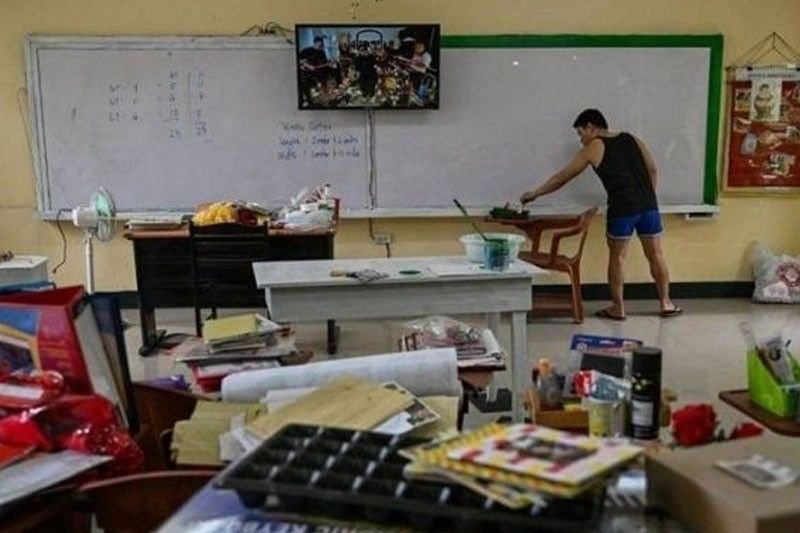October 25, 2025 | 12:00am
MANILA, Philippines — The Department of Education will seek the assistance of the Asian Development Bank (ADB) and the World Bank (WB) in constructing at least 55,000 classrooms to help address the classroom backlog of 165,000, a DepEd official said yesterday.
In an interview over dzBB, DepEd Assistant Secretary for infrastructure Aurelio Paulo Bartolome said the ADB would help in the construction of 15,000 classrooms, while the WB would oversee the building of 40,000 under a public-private partnership (PPP) program.
He added that another package is being finalized for the construction of 50,000 more classrooms.
“If these will push through, we expect to build more than 100,000 classrooms in the next six years,” Bartolome noted.
He explained that under the PPP scheme, private firms will finance the classroom construction and DepEd will pay them over a 10-year period.
“The system is that we will lease it in the next 10 years. Our problem is fiscal space – if each classroom is worth P2 million, we can pay P200,000 each yearly,” he said.
A task force will be formed to finalize a unified cost structure for classroom construction.
“The task force will include the Department of Public Works and Highways (DPWH), the local government units and experts in the construction industry so that we will have unified costing and correct pricing of classrooms,” Bartolome added.
Meanwhile, a “classroom summit” will be held on Nov. 20 in Clark, Pampanga.
“We will release all the information here. We can invite contractors and civil society to get involved,” Bartolome said.
In a related development, the League of Cities of the Philippines (LCP) expressed full support for President Marcos’ directive to channel classroom construction funds directly to local governments to help address the nationwide shortage.
LCP national president and San Juan City Mayor Francis Zamora said the initiative marks a major step toward strengthening basic education and ensuring the efficient use of public funds.
“Direct funding to cities will significantly help ease the shortage. We will ensure that every peso intended for classroom construction is used judiciously, efficiently and with full transparency and accountability,” he added.
Zamora said city mayors are ready to coordinate with the DPWH and the DepEd in implementing the program.
Disaster-resilient
Meanwhile, DepEd has allocated P1.35 billion to support disaster-resilient learning in public schools and ensure continuity of education during natural disasters.
Education Secretary Sonny Angara said the funds will cover the printing, delivery and training related to learning packets and dynamic learning program (DLP) materials.
Angara added that the initiative aims to equip teachers and students with tools that allow classes to continue safely even when schools are temporarily closed.
The allocation includes regional funds and covers the printing and distribution of learning packets for Grades 1 to 12 (P950 million) and the DLP materials for junior high school learners (P499 million). — Mark Ernest Villeza


